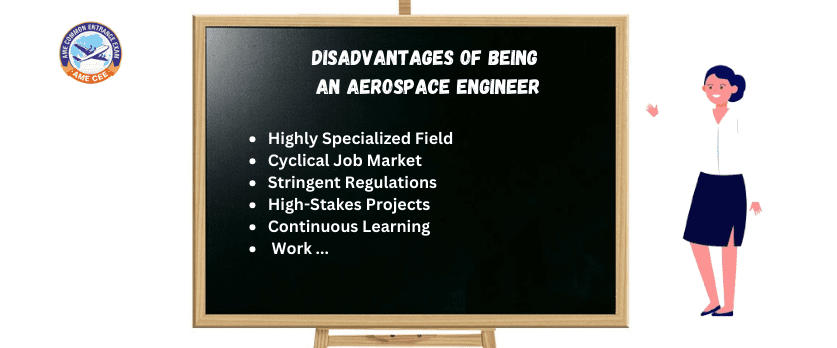While aerospace engineering offers exciting opportunities, there are some potential disadvantages to consider
Highly Specialized Field
Expertise in a narrow field may limit job options outside aerospace industries.
Cyclical Job Market
Aerospace industries can be influenced by economic fluctuations, leading to job market uncertainties.
Stringent Regulations
Compliance with strict safety and regulatory standards can be challenging and time-consuming.
High-Stakes Projects
Mistakes can have severe consequences in the aerospace industry, leading to high stress levels.
Continuous Learning
Rapid technological advancements necessitate constant skill updates and learning throughout one’s career.
Work Pressure
Tight project deadlines, especially in the aerospace engineering sector, can lead to high-pressure work environments.
Security Clearance
Some aerospace positions may require security clearance, limiting job accessibility for certain individuals.
Limited Geographical Options
Aerospace jobs are often concentrated in specific regions, limiting options for those unwilling to relocate. Despite these challenges, many aerospace engineers find the field rewarding due to its innovation, impact on technology, and the opportunity to contribute to space exploration and aviation.
To become an aerospace engineer you may could join aerospace engineering through AME COMMON ENTRANCE EXAM (AME CEE) this examination you may join Aerospace Engineering approved by AICTE.


